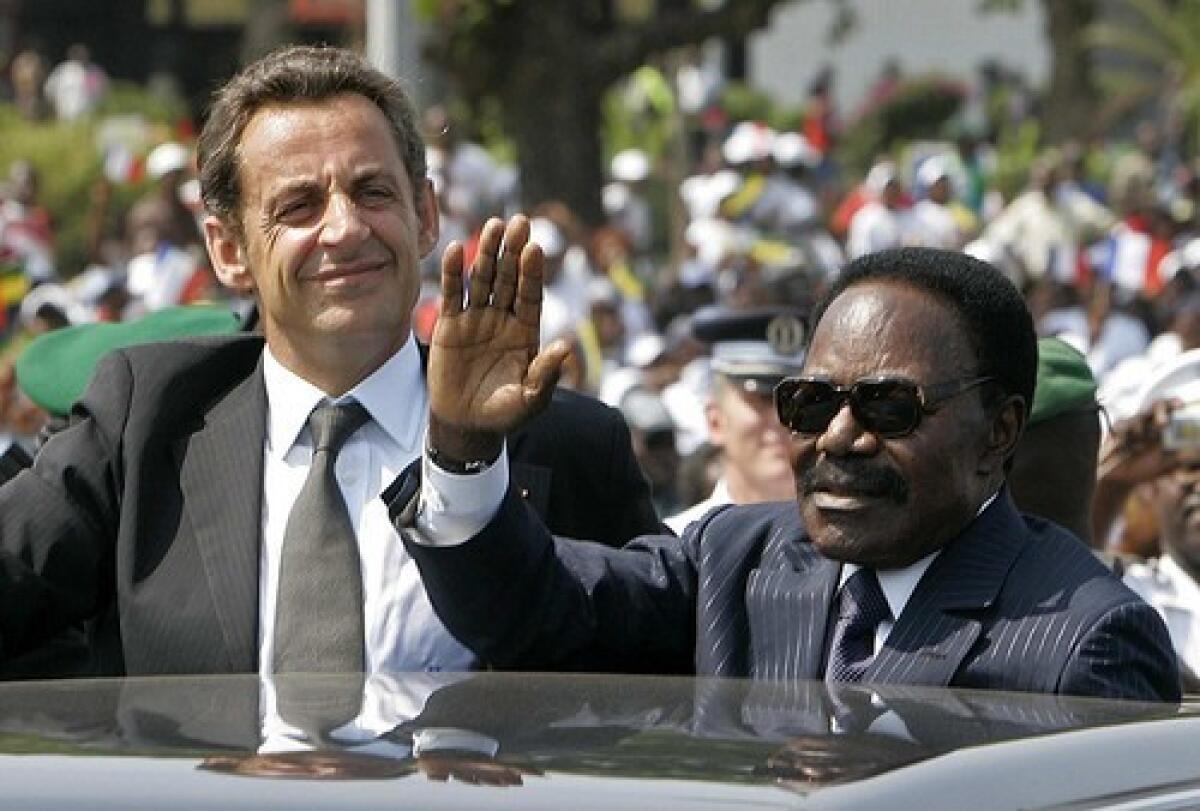Omar Bongo dies at 73; Gabonâs president for 42 years

Gabon President Omar Bongo, whose nearly 42-year rule was a throwback to an era when Africa was ruled by âBig Men,â died Monday of cardiac arrest in a Spanish hospital. He was 73.
Doctors at the Quiron Clinic in Barcelona, Spain, announced Bongoâs death Monday about 2:30 p.m. Central European Summer Time, Gabonese Prime Minister Jean Eyeghe Ndong said. Bongo was admitted to the hospital last month.
Bongo had been in office in the former French colony since 1967, harking back to the days when âBig Menâ came to power in Africa and never let go. He had been in power for so long that most of Gabonâs 1.5 million people have known only him as president.
Opposition parties were allowed in 1990 amid a wave of pro-democracy protests. Parliament -- dominated by his supporters -- removed presidential term limits from the constitution in 2003.
Bongo became the longest-ruling head of state, not counting the monarchs of Britain and Thailand, after Fidel Castro stepped aside in Cuba last year.
While most Gabonese genuinely feared Bongo and he faced little opposition, many accepted his rule because he had kept his country remarkably peaceful and had governed without the sustained brutality characteristic of many dictators.
Bongo, meanwhile, amassed a fortune that made him one of the worldâs richest men, according to Freedom House, a private Washington-based democracy watchdog organization. No one really knew how much he was worth.
Gabon is the fifth-biggest oil exporter in sub-Saharan Africa, and Bongo built a vast system of patronage, doling out largesse in part through salaries and benefits that come with Cabinet posts.
Earlier this year, a French judge decided to investigate Bongo and two other African leaders over accusations of money laundering and other alleged crimes linked to their wealth in France.
The probe followed a complaint by Transparency International France, an association that tracks corruption. French media have reported that Bongoâs family owns abundant real estate in France -- at one time owning more properties in Paris than any other foreign leader.
The youngest of 12 children, Albert-Bernard Bongo was born in Lewai, now known as Bongoville, on Dec. 30, 1935. He served as a lieutenant in the French air force then climbed quickly through the civil service.
He assumed the presidency on Dec. 2, 1967, after the death of Leon MâBa, the countryâs only other head of state since independence from France in 1960. Bongo, then vice president, succeeded MâBa and set up a one-party state.
Six years later, Bongo converted to Islam and took the name Omar.
Information on survivors was not immediately available.
More to Read
Start your day right
Sign up for Essential California for the L.A. Times biggest news, features and recommendations in your inbox six days a week.
You may occasionally receive promotional content from the Los Angeles Times.






